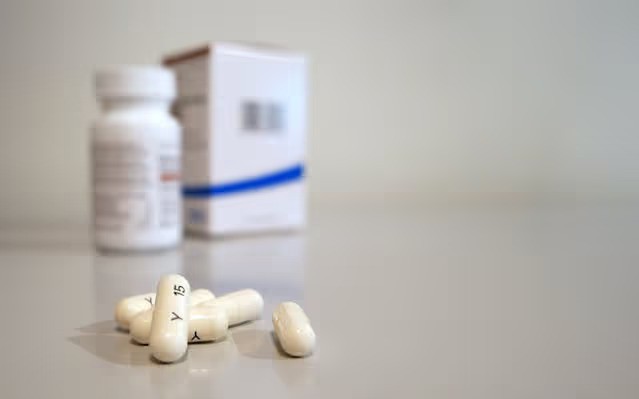Alcohol and Naproxen Interaction
Understanding the potential interaction between alcohol and naproxen is crucial for ensuring the safe and effective use of both substances. Let’s explore the relationship between alcohol and naproxen and the risks associated with their combination.

Understanding Alcohol and Naproxen
Alcohol is a widely consumed beverage that can have various effects on the body, including relaxation and impairment of judgement and coordination. Naproxen, on the other hand, is a nonsteroidal anti-inflammatory drug (NSAID) commonly used to alleviate pain, reduce inflammation, and manage fever.
Risks of Mixing Alcohol and Naproxen
Combining alcohol and naproxen can pose several risks to your health and well-being. It’s important to be aware of these risks and make informed decisions when considering the simultaneous use of these substances.
Risks of Mixing Alcohol and Naproxen
Increased risk of gastrointestinal effects
Impaired liver function
Increased risk of bleeding
Mixing alcohol and naproxen can lead to an increased risk of gastrointestinal effects. Both alcohol and naproxen can irritate the stomach lining, potentially leading to symptoms such as stomach ulcers, bleeding, and abdominal pain.
Alcohol and naproxen can also affect liver function. Alcohol is metabolized by the liver, and the simultaneous use of naproxen can further burden this vital organ. This can potentially lead to liver damage and interfere with the body’s ability to process both substances effectively.
Moreover, combining alcohol and naproxen can increase the risk of bleeding. Both alcohol and naproxen can interfere with the blood’s ability to clot, making it more difficult for wounds to heal and increasing the risk of excessive bleeding.
To mitigate these risks, it is advisable to exercise caution when consuming alcohol while taking naproxen. It is recommended to consult with a healthcare professional or pharmacist for personalized advice based on your specific circumstances, medical history, and any other medications you may be taking.
By understanding the potential risks associated with mixing alcohol and naproxen, you can make informed decisions to prioritize your health and well-being. It is essential to be mindful of the potential adverse effects and seek appropriate medical advice when needed.
Effects on the Body
Mixing alcohol and naproxen can have various effects on the body, particularly in the gastrointestinal system, liver function, and the risk of bleeding.
Gastrointestinal Effects
Both alcohol and naproxen can individually irritate the lining of the stomach and intestines. When combined, they can exacerbate these effects, potentially leading to an increased risk of gastrointestinal complications. These complications may include stomach ulcers, bleeding, and inflammation.
It’s important to note that the severity of these effects can vary depending on factors such as the dosage of naproxen, frequency of alcohol consumption, and individual susceptibility. However, it is generally recommended to avoid mixing alcohol and naproxen to minimize the risk of gastrointestinal issues.
Liver Function
Alcohol is primarily metabolized in the liver, and excessive alcohol consumption can lead to liver damage or impairment. Naproxen, on the other hand, is processed by the liver as well. When alcohol and naproxen are combined, the liver may be subjected to increased stress as it tries to metabolize both substances simultaneously.
This increased stress on the liver can potentially lead to liver toxicity and compromise its ability to function properly. It is especially important for individuals with pre-existing liver conditions or those taking other medications that affect liver function to exercise caution and seek medical advice before combining alcohol and naproxen.
Increased Risk of Bleeding
Both alcohol and naproxen can independently increase the risk of bleeding. Alcohol acts as a blood thinner, impairing the clotting process and potentially leading to excessive bleeding. Naproxen, as a nonsteroidal anti-inflammatory drug (NSAID), can also inhibit blood clotting and increase the risk of bleeding.
When alcohol and naproxen are mixed, the combined effect can further heighten the risk of bleeding. This can be particularly problematic for individuals who are already at an increased risk of bleeding, such as those with certain medical conditions or who are taking blood-thinning medications.
It is crucial to be aware of the potential for increased bleeding when alcohol and naproxen are combined and to take appropriate precautions. If you experience any unusual bleeding or bruising, it is essential to seek medical attention promptly.
Understanding the effects of mixing alcohol and naproxen on the body is crucial for making informed decisions about their simultaneous use. It is always recommended to consult with a healthcare professional for personalized advice and recommendations regarding alcohol consumption and the use of medications like naproxen.
Impact on Medication Efficacy
When alcohol and naproxen are combined, it can have various effects on the body, including a decreased effectiveness of naproxen and the potential for adverse reactions.
Decreased Effectiveness of Naproxen
Naproxen is a nonsteroidal anti-inflammatory drug (NSAID) commonly used to relieve pain, inflammation, and fever. However, when alcohol is consumed alongside naproxen, it can interfere with the drug’s effectiveness.

Alcohol has the potential to alter the metabolism and elimination of naproxen in the body, leading to reduced pain relief and anti-inflammatory effects. This can be particularly concerning for individuals relying on naproxen to manage chronic pain or inflammatory conditions.
Potential for Adverse Reactions
Mixing alcohol and naproxen can also increase the risk of adverse reactions. Both alcohol and naproxen can have negative effects on the gastrointestinal system, liver function, and can increase the risk of bleeding. When combined, these risks are amplified.
Potential Adverse Reactions
Gastrointestinal irritation and bleeding
Liver damage
Increased risk of bleeding
Alcohol and naproxen can both irritate the lining of the stomach and intestines, potentially leading to gastrointestinal issues such as stomach ulcers, bleeding, and abdominal pain. Additionally, alcohol and naproxen can individually cause liver damage, and combining them can further strain the liver.
Furthermore, alcohol and naproxen have blood-thinning properties, which can increase the risk of bleeding. This can be especially problematic for individuals who are already at a higher risk of bleeding due to certain medical conditions or medications.
It is important to note that the impact of mixing alcohol and naproxen can vary depending on factors such as the amount of alcohol consumed, the dosage and duration of naproxen use, and individual differences in metabolism. However, to minimize the risks associated with this combination, it is generally recommended to avoid consuming alcohol while taking naproxen.
If you have concerns about the interaction between alcohol and naproxen or require pain management strategies, it is crucial to seek medical advice and consultation. A healthcare professional can provide personalized guidance and recommend alternative pain management approaches that are safe and suitable for you. Additionally, being aware of the warning signs of adverse reactions and knowing when to seek immediate medical help is essential for your well-being.
Managing Risks
When it comes to the potential risks associated with mixing alcohol and naproxen, there are several steps that individuals can take to minimize harm and manage their health effectively.
Medical Advice and Consultation
If you are considering consuming alcohol while taking naproxen or if you have any concerns about the potential interactions between the two, it is essential to seek medical advice and consultation. Consulting a healthcare professional, such as a doctor or pharmacist, will provide you with personalized guidance based on your specific health condition and medication regimen.
During the consultation, be sure to inform your healthcare provider about any existing medical conditions, current medications, and frequency of alcohol consumption. They can evaluate the potential risks, advise on safe alcohol consumption limits, and determine if any adjustments to your medication regimen are necessary.
Alternative Pain Management Strategies
To avoid the risks associated with mixing alcohol and naproxen, exploring alternative pain management strategies can be beneficial. There are numerous non-medication approaches that can help alleviate pain and discomfort without the need for naproxen or other pain-relieving medications. Some alternative strategies to consider include:
- Physical therapy: Engaging in exercises and stretches designed to target the affected area can help reduce pain and improve mobility.
- Heat or cold therapy: Applying heat or cold packs to the affected area can provide temporary relief by reducing inflammation and soothing discomfort.
- Mind-body techniques: Practices such as meditation, deep breathing exercises, and yoga may help manage pain by promoting relaxation and reducing stress levels.
- Natural remedies: Some individuals find relief from pain through the use of natural remedies like herbal supplements or essential oils. However, it is crucial to consult with a healthcare professional before trying any alternative treatments to ensure they are safe and appropriate for your specific situation.
Exploring these alternative pain management strategies can provide individuals with additional options for addressing their discomfort while reducing their reliance on naproxen and the potential risks associated with combining it with alcohol.
By seeking medical advice and considering alternative pain management strategies, individuals can actively manage the risks associated with mixing alcohol and naproxen. It is essential to prioritize your health and make informed decisions in consultation with healthcare professionals to ensure your well-being.
Warning Signs
When it comes to the combination of alcohol and naproxen, it’s important to be aware of the warning signs that may indicate adverse reactions. Recognizing these symptoms and knowing when to seek immediate medical help is crucial for your well-being.
Symptoms of Adverse Reactions
Mixing alcohol and naproxen can potentially lead to a range of adverse reactions. It’s important to pay attention to your body and be mindful of any unusual symptoms that may arise. Some common symptoms of adverse reactions to this combination include:
- Stomach pain or discomfort
- Nausea and vomiting
- Indigestion or heartburn
- Dizziness or lightheadedness
- Headache
- Fatigue or weakness
- Changes in vision or blurred vision
- Increased heart rate
- Shortness of breath
These symptoms may vary in severity and can be indicative of gastrointestinal issues, liver problems, or an increased risk of bleeding. If you experience any of these symptoms after consuming alcohol while taking naproxen, it’s important to take them seriously and seek medical attention if needed.
When to Seek Immediate Medical Help
While some symptoms may be mild and resolve on their own, others may be more severe and require immediate medical attention. It’s crucial to be aware of the warning signs that indicate the need for immediate help. These include:
- Severe abdominal pain or cramping
- Persistent vomiting or blood in vomit
- Black, tarry stools or blood in stools
- Yellowing of the skin or eyes (jaundice)
- Unusual bruising or bleeding
- Difficulty breathing or chest pain
- Severe headache or confusion
- Fainting or loss of consciousness
If you experience any of these symptoms, it is essential to seek immediate medical help. These signs may indicate serious complications that require prompt evaluation and treatment by a healthcare professional.
Remember, the combination of alcohol and naproxen can have potentially harmful effects on your body. It’s always best to err on the side of caution and avoid mixing these substances. If you have any concerns or questions, it is advisable to consult with a healthcare provider who can provide personalized advice based on your specific circumstances.
Alcohol and Naproxen Interaction
When it comes to the combination of alcohol and naproxen, it’s important to understand the potential risks and effects on the body. Mixing alcohol with certain medications, including naproxen, can have detrimental effects and pose serious health risks. Let’s explore the interaction between alcohol and naproxen in more detail.
Understanding Alcohol and Naproxen
Alcohol is a depressant that affects the central nervous system, resulting in relaxation and impaired coordination. Naproxen, on the other hand, is a nonsteroidal anti-inflammatory drug (NSAID) commonly used to relieve pain, reduce inflammation, and lower fever. Naproxen works by inhibiting the production of certain substances in the body that cause pain and inflammation.
Risks of Mixing Alcohol and Naproxen
Combining alcohol and naproxen can have several adverse effects on the body. Here are some of the risks associated with this combination:
- Gastrointestinal Effects: Both alcohol and naproxen can irritate the lining of the stomach and intestines. When taken together, they can increase the risk of gastrointestinal bleeding, ulcers, and other digestive issues.
- Liver Function: Both alcohol and naproxen can put a strain on the liver. Alcohol is primarily metabolized in the liver, and excessive alcohol consumption can lead to liver damage. Naproxen, when taken in high doses or for prolonged periods, can also affect liver function. Combining the two can further increase the risk of liver damage.
- Increased Risk of Bleeding: Alcohol and naproxen can both interfere with blood clotting, making it easier to experience excessive bleeding or bruising. This can be particularly risky for individuals who are already at risk for bleeding disorders or are taking other medications that affect blood clotting.
Impact on Medication Efficacy
Mixing alcohol and naproxen can also impact the effectiveness of the medication and increase the potential for adverse reactions. Here are two key considerations:
- Decreased Effectiveness of Naproxen: Alcohol can interfere with the absorption and metabolism of naproxen, potentially reducing its effectiveness in relieving pain and reducing inflammation. This can lead to inadequate pain relief and prolonged discomfort.
- Potential for Adverse Reactions: Combining alcohol and naproxen can increase the risk of experiencing adverse reactions such as dizziness, drowsiness, stomach irritation, and gastrointestinal bleeding. These reactions can be intensified when alcohol and naproxen are taken together.
To manage the risks associated with mixing alcohol and naproxen, it is crucial to seek medical advice and consultation. Healthcare professionals can provide guidance on the safe use of naproxen and offer alternative pain management strategies that do not involve alcohol. It’s important to prioritize your health and well-being by making informed decisions about medication use and alcohol consumption.
It’s also essential to be aware of the warning signs of adverse reactions. If you experience symptoms such as severe stomach pain, black or bloody stools, vomiting blood, or signs of an allergic reaction (such as hives or difficulty breathing), it’s important to seek immediate medical help.
Remember, it’s always best to consult with a healthcare professional before combining alcohol and any medication, including naproxen. They can provide personalized advice based on your medical history and specific circumstances, ensuring your safety and well-being.
Sources
https://www.drugs.com/food-interactions/naproxen.html
https://www.primroselodge.com/help-guides/naproxen-and-alcohol/




